OCTOBER 8TH
OCTOBER 13TH
BTCF Board Member Dr. Gia Marson talks with Goop about helping loved ones with an eating disorder.
Breaking the Chains and NEDA
Breaking the Chains Foundation partnered with NEDA in support of National Eating Disorder Awareness Week on February 26 – March 4th by promoting awareness via a variety of our social media networks, celebrity support, sharing NEDA’s screening tool through our social media platforms, as well as having our own online event through out the week. Also joined NEDA in forming our own team for the Los Angeles NEDA Walk on April 7th, walking and raising funds in support of stopping eating disorders.
GREAT NEWS
The award winning short film “FINDING ALICE” was an Official Selection both as a short film and written word in The Hollywood Dreamz International Film Festival and Writer’s Awards in Las Vegas, August 2017!
UPCOMING NEWS
STAY TUNED! – BTCF YOUNG HOLLYWOOD CAMPAIGN
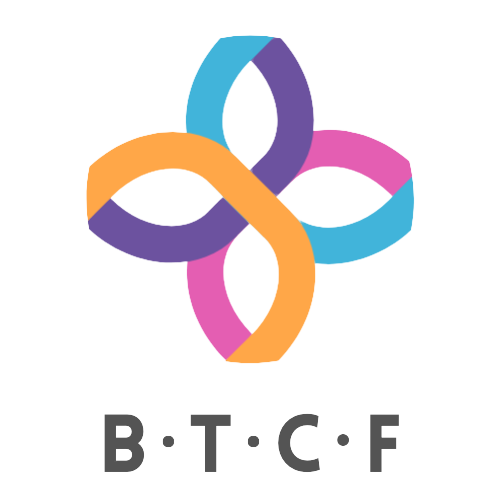

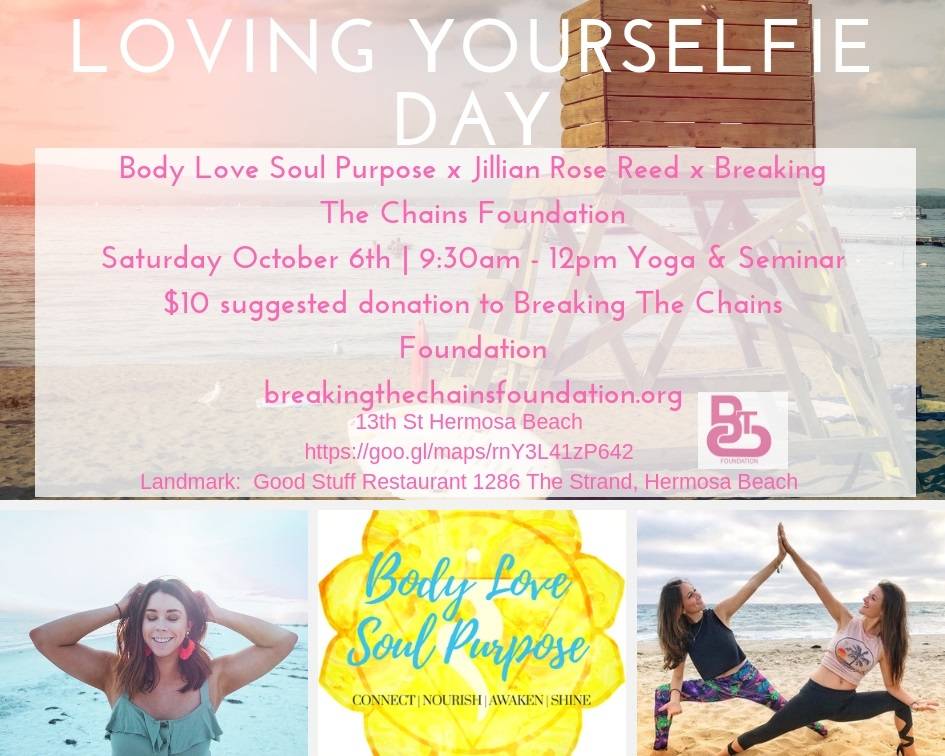
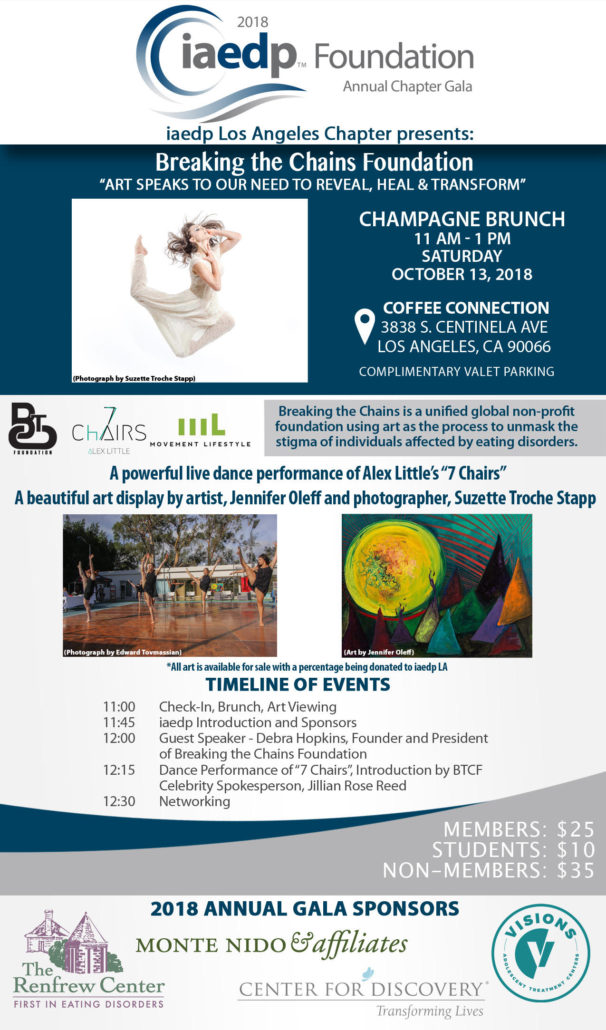
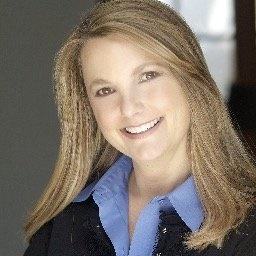
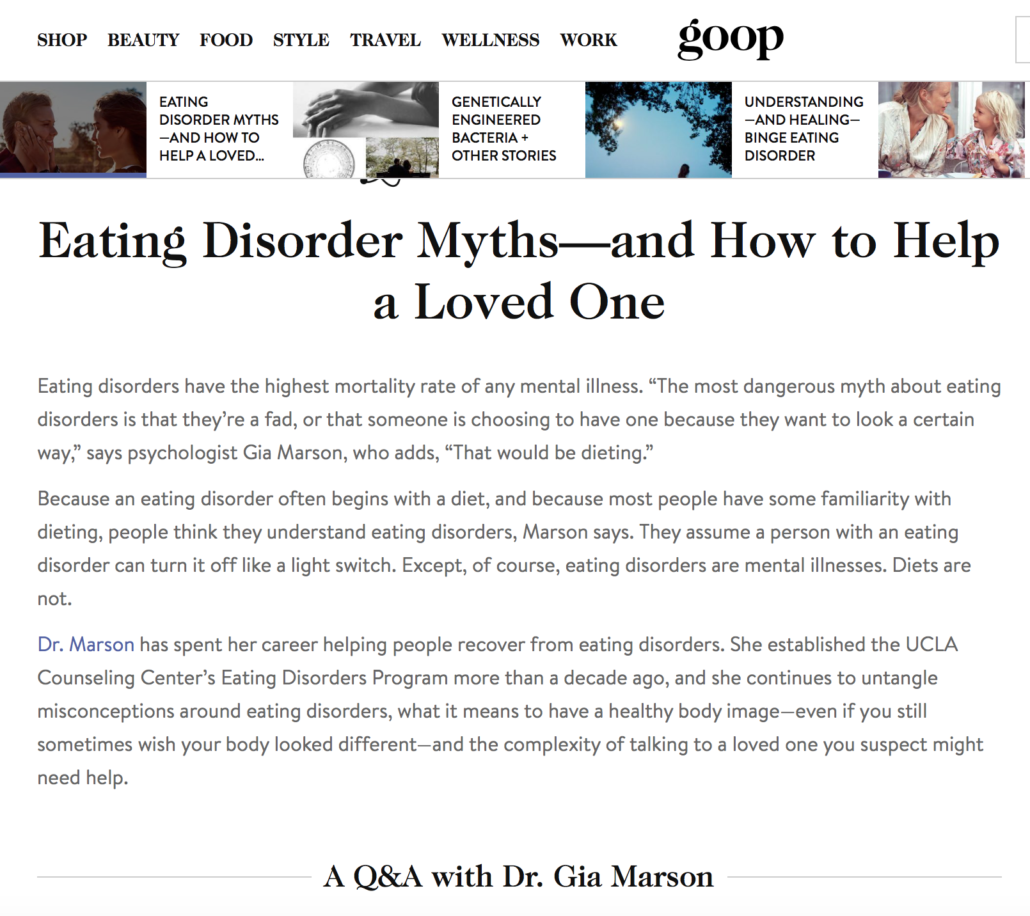
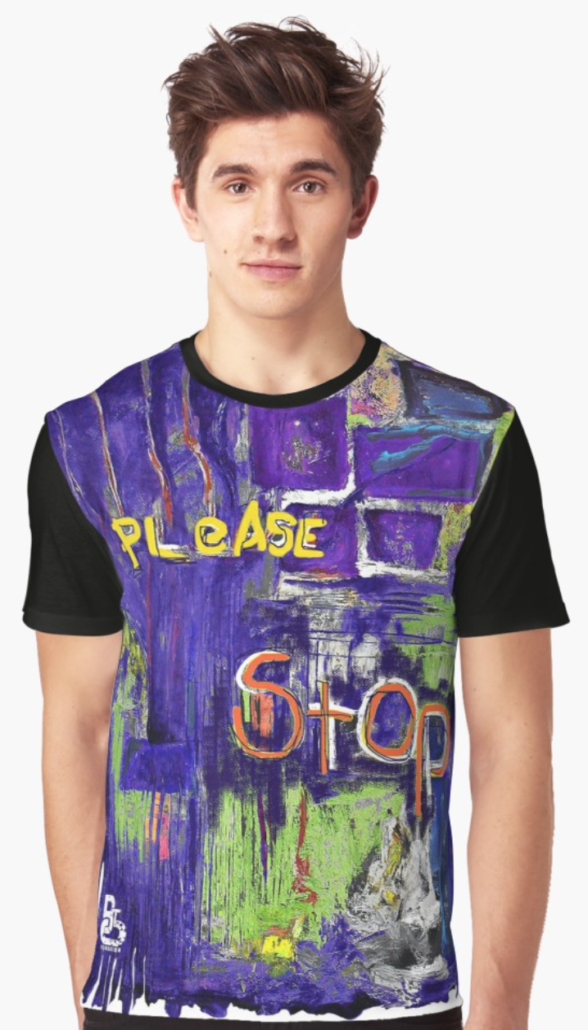

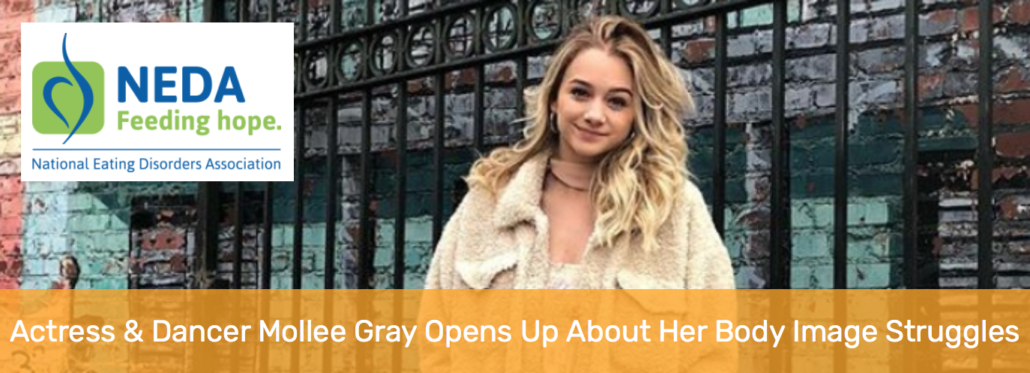
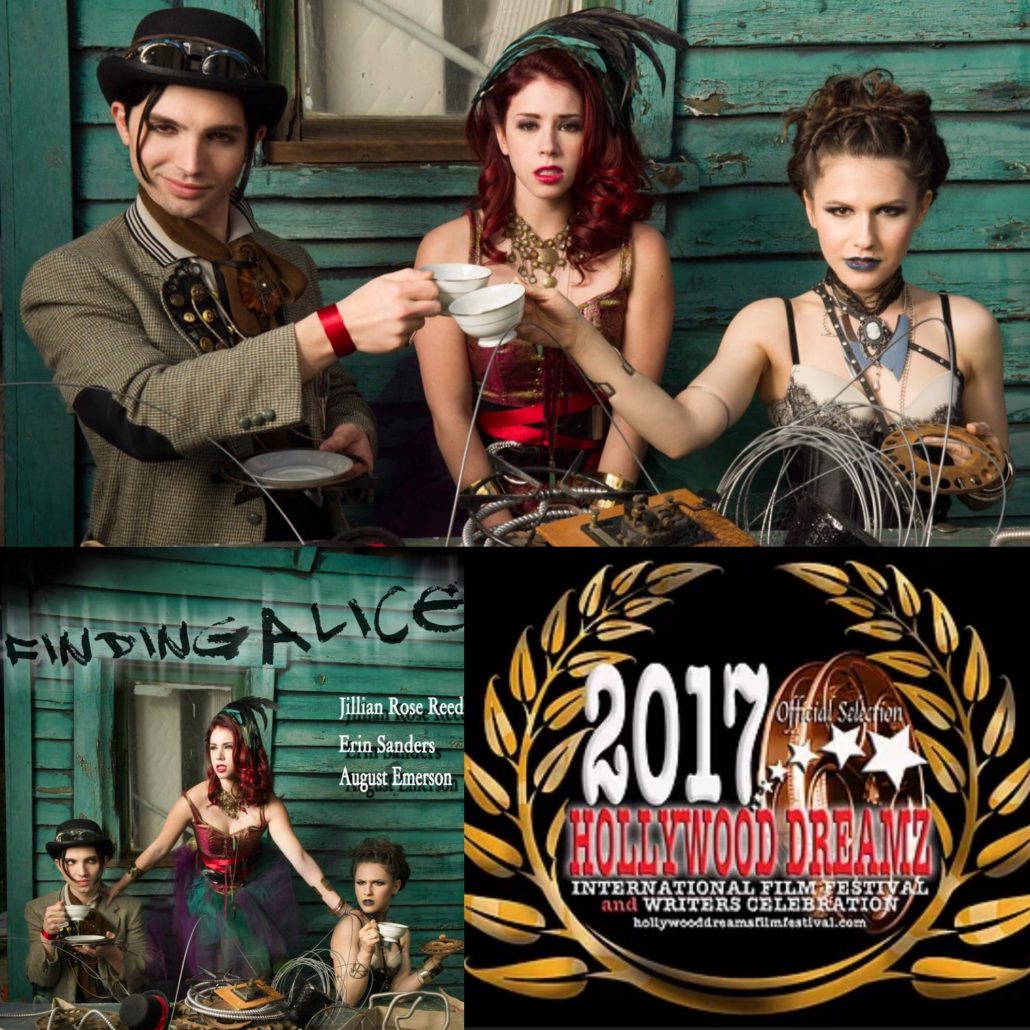
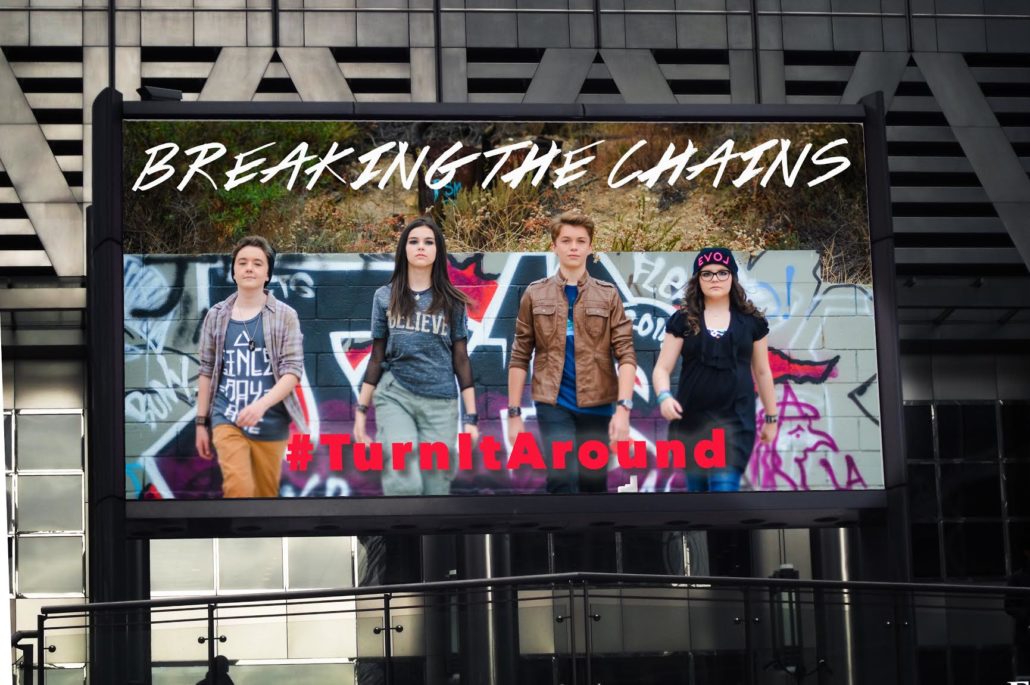
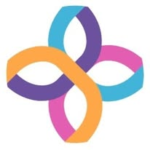


AN INTERVIEW WITH KAYDEN TOKARSKI
Artist Blogs“You define your own life. Don’t let other people write your script.” – Oprah Winfrey
Photo credit: Cathryn Farnsworth
AN INTERVIEW WITH KAYDEN TOKARSKI
By Debra Hopkins, BTCF President/Founder
I was really taken by your performance of the character Monica on the episode Siblings Get Their Payback on Dhar Mann series. On top of Monica having self-esteem and confidence struggles, she gets deeply bullied in school.
Can you talk about your experience playing this character?
KAYDEN: I loved portraying Monica. In the episode, she experiences things that many can relate to. It’s a difficult age and confusing time in life. I really tried to channel that and feel everything. There were even some things she went through that I have gone through. With every project, my main goal is to tell the truth of the character through the story, and one thing I love about the Dhar Mann series is that each episode is designed to teach a life lesson.
What message would you like to share with youth who struggle and experience bullying?
KAYDEN: You can never stand for bullying. Bullies’ goals are to tear you down. You cannot let someone take away your self-esteem, pride, and who you are. Also, remember that nothing is permanent. It may feel like it won’t stop, but it will. There is always a rainbow at the end of a storm. I know it is easier said than done, but you must use your voice. Tell someone that you trust and report the issue.
We are excited to bring you on as a BTCF Youth Ambassador and loved having you MC our How To Love Yourselfie Youth Arts and Wellness Camp! What were some of your favorite moments at the camp and why?
KAYDEN: It was my absolute honor to emcee your incredible How To Love Yourselfie Youth Arts and Wellness Camp! I had never experienced anything like it, and it was inspiring in so many ways. I love how you are teaching kids of all ages how to love themselves, which is so important. One of my favorite memories was meeting Jillian Rose Reed in person. We had been working together for 2 years over zoom prior and finally getting to meet her was so special. I squeezed her so tight! I loved all the activities – dancing, singing, writing, decorating, painting, and meditating. I felt like a whole new person after that day! It was so good for my mental health. I will say, one of my favorite activities was the drum circle! I just felt so alive. It’s really incredible what you guys are doing and how you were able to bring together and inspire so many young people in our community. I was inspired!
What are some other causes that are important to you and why?
KAYDEN: I am a big supporter of Red Cross LA and the organization as a whole. The incredible work they have done and continue to do to help so many in the face of the horrific fires in LA is a testament to how essential this nonprofit is and the impact it makes in our country. I was honored to support a Red Cross LA fundraiser a few years ago as a speaker along with Mario Lopez. In addition, I was also honored to be the keynote speaker for the Walk Against Drugs and part of the Joyful Child Foundation’s “Be Brave” initiative in 2021. These are efforts and organizations that do tremendous work to keep our youth healthy and safe.
BTCF believes that all art forms have healing properties that can aid as healing tools to enrich overall wellness. How do your different forms of art create healing for yourself and others?
KAYDEN: I feel acting in movies, TV, and web series that tell different stories of struggles and then strength in the face of adversity show audiences that there is hope and people are not alone in their challenges. The beauty of the art of acting is that it can inspire people to turn those challenges into opportunities.
An amazing fact about you is you reached Junior Olympian status on the 1-meter diving board! Can you tell us more about your journey? Do you still dive?
KAYDEN: I started competitive diving when I was 9 years old and absolutely loved it. It was one of the hardest sports I had ever participated in, but I had such a blast. One thing many don’t realize is gymnastics is a big part of diving, so a lot of training was in and out of the water. We did a lot of dry land training. I took a break a couple of years ago due to my conflicting schedule, but in the summer, I love visiting my local aquatics center and practicing diving!
When did you begin acting and why is that your passion?
KAYDEN: I began acting when I was 10 years old, so I have been pursuing it for five years now. It had always been a dream of mine ever since I was a little girl to act. I was very inspired by Disney sitcoms and actors like Zendaya and Bridgit Mendler. I fell in love with television and cinema. I truly feel so privileged to be able to do what I love. Acting is something I want to pursue for the rest of my life. I am also intrigued by the other side of the camera, too. Acting is such a great passion of mine because I love telling stories. Getting the opportunity to explore human emotions and bring different characters to life on screen is an incredible thing. A big goal of mine as an actor is to affect the audience with my portrayal of these characters.
Sometimes social media can be a tough space to navigate. What advice would you give to youth when it comes to body image struggles?
KAYDEN: I absolutely agree. Social media can be quite negative and even draining. It’s very easy to self-compare to others. I have had similar struggles in the past and even have some hiccups today. Especially as teenagers, all the insecurities start to creep up on you and it’s hard to control them. But I try to embrace it all. It’s a great reminder that we’re human. I feel that social media puts out an image that people want you to see. It looks like everyone is perfect, but that’s just not true. It’s hard to differentiate what’s real and what’s not. I think to navigate it, you must not believe everything you see. Also, fill your feed with positivity, things that lift you up, stuff that you love, and people you admire. More specifically, when it comes to body image, it’s very easy to feel insecure after looking at social media. I would take a social media break if you start negative self-talk. That is easier said than done, but sometimes you have to make that decision for yourself and your mental health.
What are 3 self-care tips that you do for yourself and why are they important to you?
KAYDEN: Self-care is such an important thing to me. First, I always strive to eat healthy, balanced meals. I want to keep my body nourished and don’t believe in skipping meals. It is totally understandable to become preoccupied and forget to eat, but that should not be a habit. I also love to meditate. Breathwork is so significant, and it helps calm my brain and get me started for the day. Lastly, exercise: Getting my body moving gives me more energy!
What is your favorite film festival you have gone to and why? Can you describe a great learning experience you had when you were there?
KAYDEN: I recently had the honor of attending the Montclair Film Festival in New Jersey. A film that I shot a year ago, “Stay Here” screened there on October 27. I had never been to New Jersey, so that right there was a very cool experience. The Montclair area is beautiful. I am someone who loves to travel and explore new towns, eat new food, and experience new cultures so getting to do that and experiencing the festival was amazing. The film festival is backed by Stephen Colbert and everyone I met was absolutely lovely.
Smoothie or Almonds?
KAYDEN: Smoothie. I love to start my day off with one!
Tacos or Pizza?
KAYDEN: Pizza. Always!
Merry-go-round or Rollercoaster?
KAYDEN: Rollercoaster!
Do you have anything else you would like to share and/or upcoming news?
KAYDEN: I am currently on the Gulf Coast filming an amazing movie that I can’t talk about yet, but I look forward to sharing details with everyone!
Thank you Kayden!
Click here to follow Kayden on Instagram, Youtube, Linktree, X, Tiktok
AN INTERVIEW WITH SAVANNAH ROSE
Artist Blogs“We don’t even know how strong we are until we are forced to bring that hidden strength forward.” – Isabel Allende
Photo by @leegumbs.photography Styled by @siennaetak MU by @kaylani.mendez
AN INTERVIEW WITH SAVANNAH ROSE
BTCF: New York City holds a special place in your heart. Can you please share why and what is your favorite memory you have had there so far?
SAVANNAH: New York is the one place in the world that lets me work without being too much for something. I have always been told I am “too much” or I am “doing too much” but it’s like my “too much” in New York, is just enough. I would say my favorite memory was seeing the Fall Festival at Lincoln Center. I saw all these amazing dance companies I have been inspired by my whole life all in one hour on the same stage (Alvin Ailey, Ballet Hispanic, ABT, NYC Ballet).
BTCF: For people who do not know, what is AMDA and where is it located?
SAVANNAH: AMDA is an arts college that has a campus in both LA and NYC. American Musical and Dramatic Academy is one of the top 10 schools to send kids to Broadway. AMDA has singing lessons, acting lessons, and teachers who are in the industry and have been a part of very iconic moments in this art form. Like (Jesse Tyler Ferguson and Anthony Ramos)
BTCF: What was the process of attending AMDA and how has it changed your life?
SAVANNAH: About two months left in deciding on a school to go to, it was a hard time because my dad wanted me to stay in South Carolina since I was getting ready to have a baby sister who is now one year old, but I had a dream, and the only plan in my dream was to go with my gut. My mom and I went to Atlanta to audition. I simply walked into the room on my own, I had to slate and start my first one-minute dance. I took a second and started to do my second dance. I was done! It took a total of 10 minutes and a few weeks later I was offered a scholarship to AMDA. I didn’t go to one of the big schools, my family did not have the money to take me to many places to audition in person, but I did get accepted into all of the schools I auditioned for. I chose AMDA because I know people who have left, and I see them now. I love who they are, and they still would say AMDA was a big part of that. But whether the school, I believe if you set a mental plan, no matter where you are, YOU can be as great as you want.
BTCF: If you had to name three people who have changed your life both professionally and personally, who would they be and why?
SAVANNAH: 1) I would say my mom has changed my life. She also created my life lol, but she has pulled me out of every dark hole I have been in. When I was too scared but still doing something, she was there with no fear. She has taught me strength and has always given me support in ways I can’t begin to imagine. 2) My dance teacher from home is Lindsey Gentry. She was a teacher who stepped my technique to another level. I never understood how powerful my mind was until I became her student. She gave me challenges I never thought I could face that days later were a routine. 3) Teddy Forance (CLI). I went to CLI for their second year of being open. We trained 10 hours a day 5 days a week and not a day went by that Teddy let us slack a bit. He teaches with love and strength and is one of the most supportive people I still have in my life.
BTCF: BTCF uses the power of all forms of art and expression to foster creativity, connection, and community as well as aide in overall wellness. How has the art of dance helped you in your wellness journey?
SAVANNAH: Wow that is a loaded one. It is safe to say dance has saved my life a few times. Dance takes me to an entirely different world, and once you learn that new world, I never go back. So dance has given me a gift of simply a world where nobody else around me is. There is a place I go that only I can get to and when I come back to reality there is still residue on it. It sounds crazy, I know. I have never even tried to explain to people this so I know it sounds wild.
BTCF: While social media can be used for many positive conversations, what do you think is the most problematic with social media when it comes to body image and low self-esteem?
SAVANNAH: I think sometimes we forget what is normal and not. When trends start to come up, we sometimes get mixed in finding out why it is a trend rather than accepting the trend however we want then adding our personal flair to it. We are all special and so far from perfect. That should be put out there just as much as a trend.
BTCF: Can you share 3 of your self-care tips and how that brings peace of mind to you?
SAVANNAH: I think one of the biggest self-care tips I have is to set time out for yourself to not only plan and schedule but go over the approach you want to have for each task in your life. Allowing yourself to stay in the habit of knowing what your purpose is for that event. Another self-care tip I have is to prepare meals for the week. That looks different for everybody, so even if that means to plan just one meal, it is the action of caring for what you want to eat is what’s important. The last self-care tip I have is to find one physical activity that you enjoy doing often. Moving our bodies is important, so finding time for something good for you while enjoying it can be just the reset you need.
BTCF: How long have you been dancing and how did you get started?
SAVANNAH: I started dancing when I was 3 so it has been 17 years. I have danced since a little girl, I always wanted to take risks in the house, and I always loved putting on a show. That same Savannah is here today.
BTCF: You are a singer as well. Any types of music that inspire you and why?
SAVANNAH: Well, I wouldn’t call myself a singer, but I have been learning to sing at AMDA. I love singing dramatic songs. Anything very sad, very angry, or very happy. Anything that seems like too much, I love to sing because it gives my emotions a place to make noise!
BTCF: As a dancer and choreographer, what inspires you the most and why?
SAVANNAH: Something that inspires me is the music. I love the music mixed with how I feel when I come in that day. Those together give me no choice but to look at the reality around me at the moment and find sense and balance to create. Whether I am the dancer, choreographer, or both, I am inspired to always create.
BTCF: Your photos showcase movement and such artistry, are you apart of this creative process and do they ever have anything to do with your own personal story?
SAVANNAH: Honestly, I was all on my own. I was very specific beforehand about the energy I want the camera to capture, but in the end, I know myself best and I definitely couldn’t check how I was looking. I had to trust the photographer and I embodied the energy I wanted to give as much as I could during and before the shoot and pray for the best. It’s like improv. You think of the endpoint the entire time but not the in between and just hope for the best.
BTCF: Personal story through dance is an incredibly powerful, vulnerable, and engaging. Even when it’s someone else’s choreography, do you ever find a connection to bring forth emotions you may have experienced to heighten the technical movement of the piece? If so, can you give an example?
SAVANNAH: Definitely. That is probably my favorite part of being given movement. I always crave the feeling of speaking through my body, but I always or usually have naturally already translated the move into something for me to speak to or about. In New York, I did a piece by Maleek Washington, and he trusted me enough for me to be the only person to start on the stage. I can’t just stand there and do what he is told. I mean I can but, there is no point in that because the people in the audience are human. So my job is for me to let them understand what I am saying. I found the feelings I had when I remember how on my own I really am. I used to be afraid of growing up. So afraid. But the only times I feel the connection for me and dance grow is when I let go of holding everyone’s hand. I hate leaving people, being on my own, not being beside my family, but this is the part of my journey I have to do on my own. That is deep enough to tap into every time and get some form of result in the end.
BTCF: What is one fun fact in your family?
SAVANNAH: My mom’s birthday is May 11, mine is May 12, my dad’s is May 13.
BTCF: What is your favorite style of dance? If you don’t have one, what are three and why?
SAVANNAH: These three styles are my favorite as of right now with me sitting here typing this. Tomorrow it could be a different answer, and the day after I will have a different answer as well. Right now, contemporary is my favorite, musical theatre, and heels dance. I love heels dance because to me heels is all about honoring the change you get through experiences, heartbreak, and discovery. I also love tap. The rhythm on my feet is amazing, finding the pattern in where my body leans towards when I do certain steps. All feels like different days of the years.
BTCF: What would you say to a young person wanting to be a dancer, but feeling they can never reach their dreams?
SAVANNAH: I would say that I know exactly what it feels like to go for something not even knowing how it is going and if it is the right thing. Even the universe doesn’t know. That is why it tends to answer with what you asked. I think you should remember that even the people that have accomplished don’t think they have done everything right. So don’t wait, just never fail yourself before the universe does. Be scared and live in the fear until it is excitement.
BTCF: Rollercoaster or Merry-Go-Round?
SAVANNAH: Rollercoaster. If I am putting my trust in a machine, we are going all in!
BTCF: Tacos or Pizza?
SAVANNAH: If I still ate meat, it would be tacos, but now and always honestly, pizza.
BTCF: Painting or Journaling?
SAVANNAH: Journaling
BTCF: Is there anything else you would like to share?
SAVANNAH: I love hard. I trust the universe more than the humans in it.
Thank you Savannah!
IG: @savannahroseeee._
https://savannah-rose.com/
Outliving My Eating Disorder
BlogBy Rachel DesRosier
I was a “normal” kid. Puberty hit me and I became chubby. I was sensitive to the world in which I was being raised – during a time when Americans were all up in arms about obesity (1990s-early 2000s).
I remember family members making remarks about me – “Doesn’t she ever eat anything green?” “How much does she weigh?” And I began to internalize it and hate myself. At 9 years old, I began to cut some “bad” foods out of my diet. At 11 years old, I would periodically see how long I could go without eating. My friendships were tumultuous around this time, and I felt jealous of the friends that were naturally skinny. My fourth-grade crush said he could never like me as long as I was fat. Boys would slap my arms to make them jiggle.
In middle school, I was gothic, and I embraced my creative side. It could have been a positive turning point, but I continued to internalize what was around me and many adults did not understand or support me. They had no clue that I was trying to revolutionize my inner world, which was full of turmoil. Be understanding and supportive of your teens – they are trying to make sense of the world.
At 16, I remember feeling like my body was not really mine, it was everyone else’s. And there were so many things wrong with my body. As my life felt out of control, my eating disorder worsened. I enjoyed lifting weights in the gym and used my rage as a catalyst. I became the captain of my school’s Girl’s Weightlifting Team.
I counted the calories in lettuce! Maybe I had anorexia athletica, but nobody would have diagnosed me back then. The adults in my life were just happy I wasn’t another chubby teen; they did not ask questions. I was really starving myself; my reward for working out was a handful of food. There were a lot of foods that I considered to be “bad” and I remember going on a kayak trip with my family and flipping out because the kayak rental place didn’t have bottled water (all the beverages had sugar in them). I probably really needed that sugar! I was still seeing gains in the weight room, so I continued my low-calorie diet. I got used to feeling hungry. Sometimes it gave me a high.
Eating disorders are two things – it is both an addiction as well as a response to feeling out of control. Those of us with eating disorders like to fly close to the sun, it feels nice there, and we don’t really know how close we come to teasing the Grim Reaper while we do it. At 17, I was slowly killing myself. I was starving and over-exercising my body. That landed me in the hospital. None of the doctors figured it out. When I got out of the hospital, I had chronic health issues.
How do you survive an eating disorder? You do whatever you have to. Like an addict, you have to choose to get better. Your mental health and well-being have to be #1. You are unlike anybody else; therefore, your treatment needs to be specific to you. Learn your triggers. If you fail, remind yourself that people fail all the time. You know who survives in life? The people who keep trying (AKA the “failures” = Survivors). Eventually, the universe says, “Oh she’s not giving up” and you will see progress.
About the author: Rachel DesRosier lives in Bradenton, FL. As the owner of Medical Zebra LLC, she promotes patient advocacy and shares resources for patients with chronic & invisible ailments. Visit here to learn more about the health issues her eating disorder caused and her journey with chronic pain. Visit here to learn more about the health issues her eating disorder caused and her journey with chronic pain.